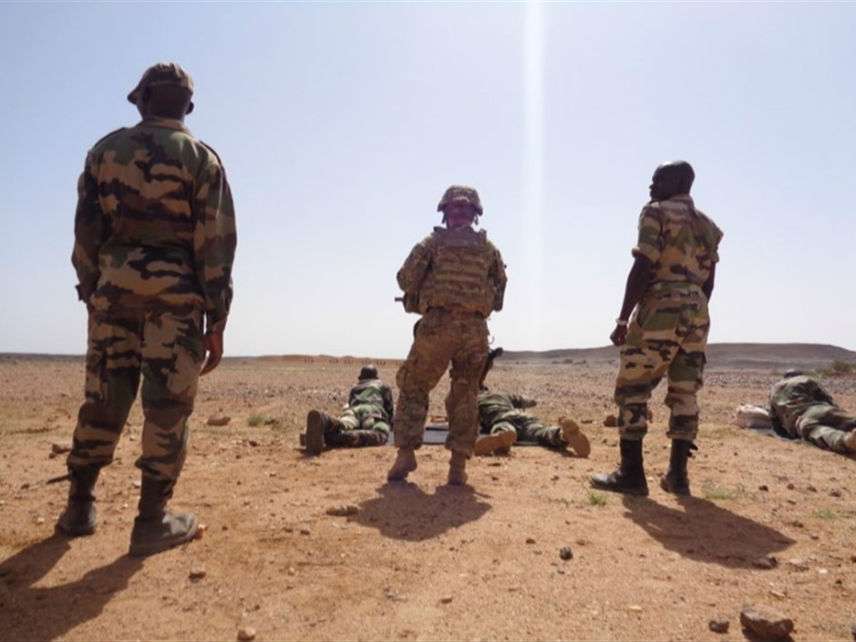U.S. Troops Will Stay in Niger and You'll Forget About It Again Soon Enough
U.S. fatalities bring America's misadventures overseas into the public eye, but only briefly.

Three U.S. troops killed in Niger became the first American casualties of a campaign launched by President Barack Obama in 2013 to assist French forces in rooting out Islamists in Mali.
"What," a probably small number of Americans are asking today, "are U.S. troops doing in Niger?"
Well, it's not quite simple. When the U.S. moved into Libya and took out Col. Moammar Qaddafi in 2011, it led to a stream of fighters and weapons from the Libyan regime spreading through the region as far as Nigeria and Syria.
In 2012, Tuareg rebels once in the employ of Qaddafi overthrew a democratic government in Mali the U.S. once pointed to as "one of the most enlightened democracies in Africa." The French, once Mali's colonial masters, soon followed. In 2013, they declared victory but promised to keep troops in the country as long as necessary.
This spread of fighters and weapons empowered Islamists in the region, feeding a resurgence of Al Qaeda in the Maghreb. Libya, North Africa, West Africa, and even the U.S., will be dealing with the consequences of the 2011 intervention for a long time.
While not at all simple, these "unintended consequences" were totally predictable. What ought to be simple is for U.S. foreign policy makers to accept that military intervention and regime change creates chaotic conditions in which extremism thrives. Libya and Iraq are just two recent examples.
Nevertheless, the U.S. insists it will continue joint counterterrorism operations with the Niger military.
The U.S. has been expanding its military footprint in Africa, especially in West Africa. In 2014 the U.S. deployed a "special security team" to Nigeria to help in the search for 300 schoolgirls kidnapped by Boko Haram. Only a couple of dozen of the girls were rescued. The U.S. is also building a drone base in a volatile region in Niger, and it runs numerous military intelligence operations across Africa.
The Obama administration was tight-lipped on U.S. activities in Africa, and most U.S. media and voters showed little interest in the evolving theater in the war on terror.
President Trump, for his part, has made it clear he'd rather defer decision-making to the military and explicitly rejected the idea of transparency in U.S. military action, claiming it only helps the enemy.
U.S. fatalities might be the only time American military misadventure in Africa gets any attention. Members of Congress interested in curbing the executive branch's war powers (like those trying to force a vote on U.S. involvement in the war in Yemen) ought not forget the importance of asserting their role in warmaking when it comes to U.S. involvement in Africa.


Show Comments (35)